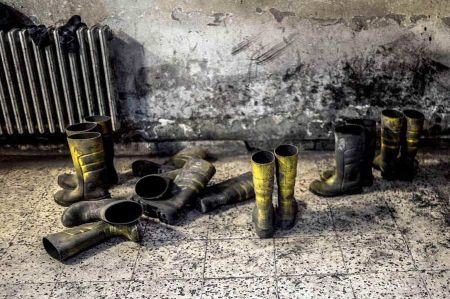EIB lent Turkey another EUR 200 million for Marmaray project
- Written by Portal Editor
- is worker safety guaranteed?
About ten years ago, the report: "The European Development Bank (EIB) is advancing Turkey a further 200 million euros for the "project of the century" Marmaray" hardly caused any response from the public; the statements made by some were too massive and downright contemptuous of people Turkish politicians and the police's approach to protests over the mass deaths of miners in the Soma coal mine. The causes for this are clearly due to inadequate working conditions, safety equipment and the education and training of miners, even if the investigations are far from being completed. However, it also shows once again how much a strong trade union organization to protect workers is fundamentally lacking in Turkey, as in many other countries.
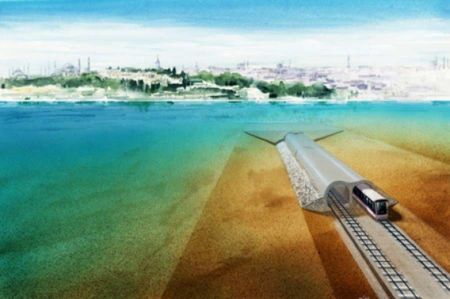 Of the 787 miners said to have been in the pit in Soma at the time of the power plant explosion, 301 fatalities were ultimately recovered. The search operations have now been completed; Turkish Energy Minister Taner Yildiz announced on Saturday. The mine entrances have now been walled up. The accident is the most serious in Turkish mining history. In 1992, 263 workers died in a gas explosion in the Black Sea town of Zonguldak.
Of the 787 miners said to have been in the pit in Soma at the time of the power plant explosion, 301 fatalities were ultimately recovered. The search operations have now been completed; Turkish Energy Minister Taner Yildiz announced on Saturday. The mine entrances have now been walled up. The accident is the most serious in Turkish mining history. In 1992, 263 workers died in a gas explosion in the Black Sea town of Zonguldak.
Given that we are certainly aware of these workplace conditions, which do not only apply to the mining sector, the question remains whether there is at least some shared responsibility on the part of the financiers? Is there any control over working and safety conditions when allocating funds for major projects, which, as is once again shown, is more than urgently needed. Do suffering and death always have to befall the people involved before one assumes responsibility in the form that the capital must also be accompanied by appropriate conditions in the workplace? Sometimes it's textile workers who have to work in factories for meager wages whose working environment doesn't meet any requirements for safe workplaces, then it's accommodations that go up in flames in winter and burn construction workers, now it's the coal mine in Soma. This pure profit motive secures wealth for a few while others suffer "blows of fate" that destroy their lives.
Already on May 14, 2014, Turkish Prime Minister Recep Tayyip Erdogan downplayed the poor safety record of coal mines in his country with a comparison from the 19th century: "Such accidents happen all the time. I look back to the English past, where 204 people died in a mine in 1862 People died. Dear friends, 684 people died in a methane gas explosion in China in 1960."
Why not combine the allocation of huge investment sums with requirements for occupational safety and monitoring of these by independent bodies. At least this could create a little more security for employees in small steps.
EIB Vice-President Pim van Ballekom and Finance State Secretary Ibrahim Canakci proudly announced the signing of the new financial injection from the Europeans in Ankara a few days earlier. To realize the construction project, including tunnelling under the Bosphorus, the bank has so far provided a total of 1.25 billion euros in financing assistance. As Mr. Ballekom further explained, the bank provided a total of 2.3 billion euros to Turkey in 2013 alone.
Does Mr. Ballekom also know how the employees live, under what conditions they have to work every day and what share of the major investments they receive for their work?
The Marmaray project is one of Turkish Prime Minister Recep Tayyip Erdogan's favourite projects. At the end of October 2013, on the 90th anniversary of the founding of the Turkish Republic, the tunnel was opened for rail use. The opening was celebrated with great pomp and in the presence of several heads of state, including Japanese Prime Minister Shinzo Abe.
However, the premiere of the Marmaray project did not go off without a hitch. The first breakdowns occurred two days after the opening of the first section. The S-Bahn trains on the “Marmaray” connection were temporarily stopped due to a power outage. Power outages are a relatively common phenomenon in the metropolis of 15 million and, as every traveller to Turkey knows, not only there.
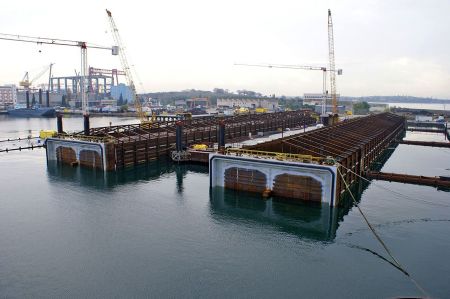 Marmaray is planned as part of the pan-European transport corridor IV. The high-speed rail line under construction between Istanbul and the capital Ankara is also part of this project and is being financed by the European Development Bank in order to strengthen the transport infrastructure between Europe and Turkey. In other words, projects that are definitely in the interest of both sides. The European bank has put around 2.6 billion euros on the table for this over the past ten years.
Marmaray is planned as part of the pan-European transport corridor IV. The high-speed rail line under construction between Istanbul and the capital Ankara is also part of this project and is being financed by the European Development Bank in order to strengthen the transport infrastructure between Europe and Turkey. In other words, projects that are definitely in the interest of both sides. The European bank has put around 2.6 billion euros on the table for this over the past ten years.
“This is not an accident, not fate, but murder and massacre,” is chanted in front of the headquarters of Soma Holding, which is responsible for the mine, in Istanbul.
The question is also circulating in the Turkish media as to the extent to which Soma Holding maintains close relations with the AKP. The wife of the managing director of the Soma Holding mining company, Ramazan Dogru, Melike Dogru, was elected to the city council as an AKP member in the last regional elections in March. There have now been 18 arrests - 5 days after the accident.
The Islamic-conservative ruling party AKP is accused of always having a protective hand over the operating holding company, and as a result, thousands demonstrated against the government in Ankara, Istanbul and Izmir. At the end of April, the AKP majority defeated an opposition proposal in parliament to investigate the industrial accidents in 2012 and 2013 in the Soma mine. The draft itself was submitted at the end of 2013 by Manisa Provincial CHP MP Özgül Özel. There was a call for an investigation into the accidents of the past two years, which resulted in one fatality and many injuries. The draft also provided for the establishment of preventative measures and a monitoring procedure for inadequate state controls.
In September 2012, the head of Soma Holding, Alp Gürkan, proudly announced in an interview that he had been able to significantly reduce costs in the mine after it was taken over from state ownership. This is reported by the newspaper “Hürriyet Daily News”. The production costs per ton of coal have been reduced from up to 140 dollars (almost 102 euros) per ton to just under 24 dollars (almost 17.50 euros).
And the people and workers of Soma – what happens next for them? And elsewhere?
The accidents reported in the press represent only a small part of the statistics. According to official information, over 6,000 miners died in mining accidents in the People's Republic of China in 2004. Unofficially there is talk of over 12,000 deaths every year. Between 1992 and 2002, 59,543 miners officially died. It is estimated that around 600,000 miners work in tens of thousands of (mostly illegal) small-scale mines. According to official figures, there were 17 deaths in these small companies in 2000 and 2 deaths per million tons of coal mined in the larger, state-owned mines. China is therefore currently the world leader in accident statistics.
Ukraine's mines are also among the most dangerous in the world. Mining accidents here claimed at least 3,700 lives between 1991 (the year it became independent from the USSR) and 2002.
According to the Turkish Ministry of Labor, more than 11,000 people died in around 730,000 work accidents in the nine years up to 2014 alone; In 2010, an average of four miners died per day.
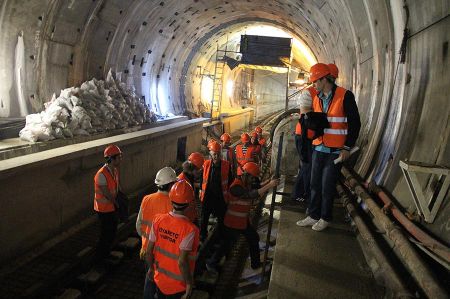 It is the dark side of the boom on the Bosphorus: Fatal accidents at work are part of everyday life in Turkey. The country holds the tragic record across Europe. The government is only acting half-heartedly, the unions are powerless.
It is the dark side of the boom on the Bosphorus: Fatal accidents at work are part of everyday life in Turkey. The country holds the tragic record across Europe. The government is only acting half-heartedly, the unions are powerless.
No coincidence, says labour lawyer Ceren Uysal in Istanbul: "Companies want to make maximum, quick profits. There is little value placed on human life. Our laws for occupational safety are not bad, but they are not followed," says Uysal. “There is a lack of controls and tough sanctions.”
Reports of fatal accidents at work in Turkey have become too commonplace. Nowhere in Europe do they happen more often than here; the country ranks third in the world according to the International Labor Organization (ILO).
Just in January, eight miners died in a gas explosion in Kozlu, northern Turkey. State inspectors had already discovered significant safety deficiencies in the mine in 2011 - but it was not closed. The mine was also in state hands, but was operated by a subcontractor. The victims were inexperienced temporary workers who were sent to the mine without safety training.
The subcontracting system is widespread in Turkey: large corporations or state-owned companies have their orders carried out by smaller, cheaper companies. Their employees are mostly unskilled migrant workers; they are often paid below the minimum wage and are not insured. Nine out of ten accidents happen in this shadow system.
Serkan Öngel from the left-wing union DISK says: "Unemployment in Turkey is very high, and workers are afraid of losing their jobs if they demand their rights. Unions are under great pressure, petitions and strikes are only allowed in exceptional situations. Workers are being fired on a mass basis because they are union members. And when they protest, they are beaten or arrested by the police."
After the arrests due to the most serious mining accident in Turkey's history, the Turkish judiciary has now initiated investigations against five main suspects. Prosecutor Bekir Sahiner told reporters in Soma that these three people were part of a total of 25 suspects arrested on Sunday. This also includes the management of the mine operator. By Saturday, the government had publicly certified that the mine operator had complied with all safety requirements.
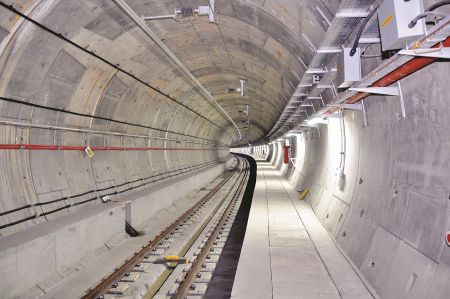 Politicians from almost all parties in Germany have spoken out against Turkish Prime Minister Erdoğan's planned appearance in Cologne next Saturday. Green Party leader Cem Özdemir said that with his reaction to the mining accident, Erdogan was turning the deep sadness of many Turks into anger. The head of government cannot simply go on an election campaign now.
Politicians from almost all parties in Germany have spoken out against Turkish Prime Minister Erdoğan's planned appearance in Cologne next Saturday. Green Party leader Cem Özdemir said that with his reaction to the mining accident, Erdogan was turning the deep sadness of many Turks into anger. The head of government cannot simply go on an election campaign now.
The North Rhine-Westphalian Integration Minister Guntram Schneider (SPD) called on Erdoğan to cancel his speech. “I consider the visit to be absurd and inappropriate in terms of its course and content,” he told the WAZ newspaper. "The visit comes close to an abuse of guest rights." CSU General Secretary Andreas Scheuer told Spiegel Online: "Erdoğan must not shift his election campaign battles to Germany."
Many important signals, without question! However, it still remains unclear what needs to be changed in the political work and orientation regarding the financing of large projects in order to protect the workers from greed and exploitation, from the desire for profit and greed. This has long since ceased to be an internal matter in the independence of states as interference in internal affairs. The so often used word “globalization” also applies here to protect human lives!
Please read as well:
Reflection: “Media and Freedom” conference in Izmir
Motya – Sacred Pool of Baal and not an inland port
